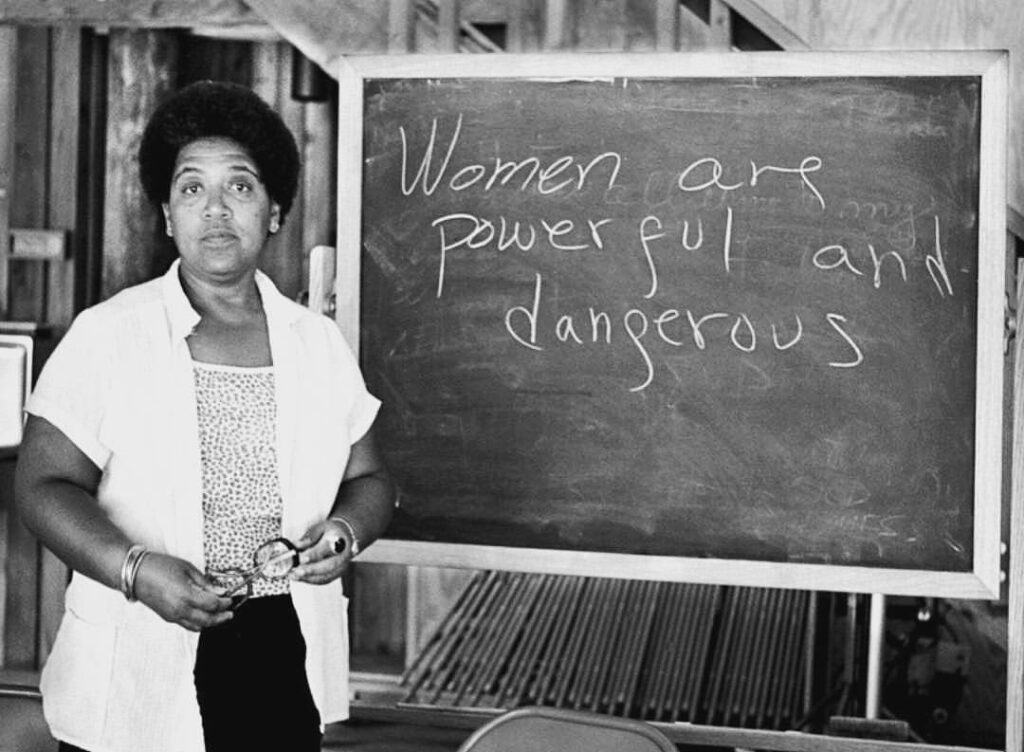Roter Salon / Volksbühne, Berlin, Germany
21 Oct 2018

image: Audre Lorde via Volksbühne
For decades, people of colour, womxn and other minority communities have drawn attention to the violent disparities that continue to persist in cultural institutions. How is it possible, then, that museums, galleries, symposia and other cultural initiatives continue to place such a disproportionate focus on the cultural practice and achievements of white men?
The art community, in particular, likes to prides itself on protecting freedom of expression above all other principles. But whose freedom of expression does it celebrate and amplify, exactly? And at what cost to those whose voices are marginalised as a consequence? Can we really grasp and narrate the complex world in which we live, when voices of privilege continue to resonate so dominantly and so disproportionately, effectively sidelining the voices of so-called ‘others’? Are universalist defences of freedom of expression merely an alibi, serving to distract from the urgent and necessary work of transformation that lies ahead, if institutions wish to commit to dismantling existing infrastructural hierarchies and broadening their programming? The aim of this panel is to discuss various possibilities via which to move beyond commonly-used consciousness-raising strategies (as exemplified, for example, in the practice of the Guerrilla Girls, or in the use of tools such as the ‘open letter’), towards actual transformation within our cultural institutions. What role can rigorous intersectional feminism play in building meaningful alliances and addressing systemic disparities that have continued to fester for generations? Should we be pushing harder for a diversity quota? And why are quotas such a fearful prospect to so many on the cultural left in Europe? What other forms of collective practice could be effective in challenging cultural institutions to support the creative labour of a broader range of cultural producers? A strong hope is that this panel will open onto other forms of collective action in the future. We warmly invite those attending to share their ideas and thoughts.
With: Heba Y. Amin , Grada Kilomba, Bonaventure Soh Bejeng Ndikung, Iris Rajanayagam, Candice Breitz
.
21 October, 8pm
Volksbühne Berlin
Rosa-Luxemburg-Platz,
10178 Berlin
.